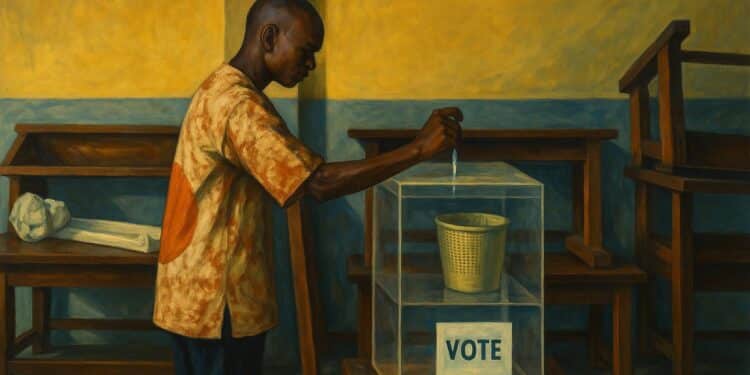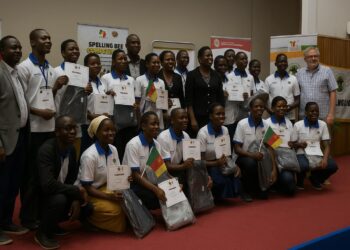Electoral Calendar Receives Legal Clarity
The Republic of Congo has issued an executive decree dated 7 August that locks in two decisive dates: a nationwide revision of the electoral register from 1 September to 30 October 2025 and the presidential ballot on 22 March 2026, with the defence forces casting their votes five days earlier. The timing follows the precedent of the 2021 election, when 2.645 million citizens were enrolled and 67 percent of them turned out, according to the Independent National Electoral Commission. Diplomatic missions in Brazzaville, including those of the European Union and the African Union, privately welcomed what one senior envoy described as “a predictable roadmap that allows partners to plan observation deployments” (diplomatic source, Brazzaville, 14 August 2023).
Under the 2015 Constitution, the head of state may stand for additional five-year terms, a provision upheld by the Constitutional Court in several opinions. The decree therefore leaves the door open—without stating it explicitly—for President Denis Sassou Nguesso, in office since 1997, to seek a fifth mandate. The ruling Congolese Labour Party, or PCT, will formalise its ticket at a congress expected before year-end, a step in line with party statutes.
Opposition Stakes and Early Declarations
The legal certainty of the calendar has energised segments of the opposition landscape. Destin Gavet, leader of the Republican Movement, was invested in January and has since toured the southern departments to canvass signatures. Frédéric Bintsamou—popularly known as Pastor Ntumi—secured the nomination of the National Council of Republicans on 19 July. Both personalities have signalled their intent to participate in the voter-registration audit, arguing that “credible lists are the first immunity against contestation” (interview, Pointe-Noire radio, 21 July 2023).
Observers note, however, that an enduring asymmetry of resources separates opposition aspirants from the incumbent. The International Crisis Group’s 2022 briefing on Congolese governance underlined that state media coverage remains “overwhelmingly favourable to the executive,” even as social-media penetration provides alternative channels for pluralist debate. For the moment, no broad opposition coalition comparable to the 2016 IDC-Frocad platform has surfaced, a variable likely to influence campaign dynamics.
Institutional Fine-Tuning and International Engagement
The Ministry of the Interior has confirmed that biometric kits procured through a multiyear contract with the German firm Dermalog will be redeployed during the 2025 revision period, incorporating lessons from pilot tests in Ouesso and Dolisie. Electoral commission officials state that the software upgrade allows instantaneous deduplication of fingerprints, a technical safeguard praised in an April 2023 United Nations Development Programme assessment.
Parallel to domestic preparations, Brazzaville has opened consultations with the Economic Community of Central African States on a memorandum of understanding for election observation. The UN Office for Central Africa (UNOCA) has signalled readiness to provide logistical support, emphasising that calm elections in Congo would contribute to a “virtuous regional climate” in the Gulf of Guinea security corridor.
Economic Headwinds and Voter Sentiment
Macroeconomic indicators, while stabilising after the pandemic shock, continue to weigh on the electorate’s mood. The International Monetary Fund’s Article IV report of June 2023 projects 3.2 percent growth for 2024, driven largely by offshore hydrocarbons, yet acknowledges persistent youth unemployment near 42 percent. Civil-society interlocutors, such as the Centre for Social Dialogue, argue that economic grievances will shape electoral discourse as much as constitutional provisions, pushing candidates to articulate development-centric platforms.
Yet the government underscores its recent renegotiation of debt with Chinese creditors and the progressive rollout of fibre-optic corridors linking Brazzaville to Cabinda and Yaoundé as proof of tangible gains. In a televised address on 30 July, Prime Minister Anatole Collinet Makosso framed the 2026 vote as “an opportunity to ratify the country’s return to growth through continuity and measured reforms.”
Geostrategic Reverberations Beyond the Congo River
Regional chancelleries are attentive to the Congolese timeline, mindful that neighbouring Democratic Republic of Congo completed elections in December 2023 and that Gabon experienced a transfer of power in 2023 as well. Stability in Brazzaville, a logistical hub for UN missions in Central Africa, remains a priority for external partners, including France and China, both of which maintain substantial energy and infrastructure portfolios.
In Washington, a senior State Department official told the Atlantic Council that “predictable elections in Congo help anchor a corridor that stretches from Luanda to Yaoundé,” reflecting a calculus that orderly political processes in smaller states can buffer shockwaves from more volatile neighbours.
Outlook Toward March 2026
The release of an electoral calendar nearly nineteen months in advance offers an extended runway for both technical preparations and political dialogue. For the administration of President Sassou Nguesso, it furnishes evidence of procedural transparency. For the opposition, it opens a window—albeit narrow—for organisational consolidation. Foreign partners see the timetable as a benchmark against which to pace assistance and observation missions.
Whether the comfortable lead times will translate into heightened voter confidence ultimately hinges on the integrity of the voters’ roll and the perceived equity of media access. As one Brazzaville academic put it, “the watchwords are patience and vigilance, but the architecture for a credible contest is, at least on paper, now in place.”












































